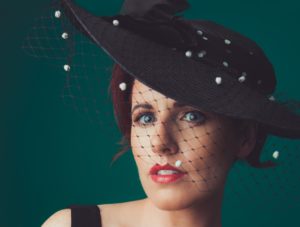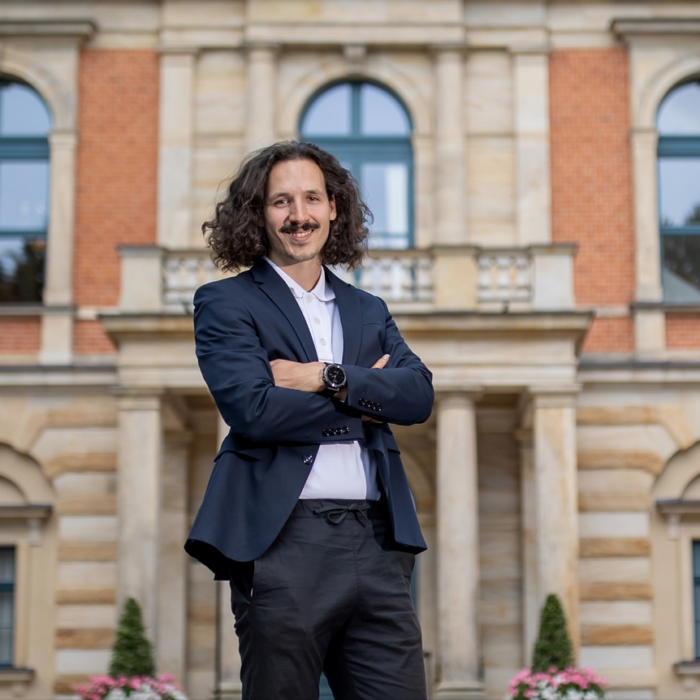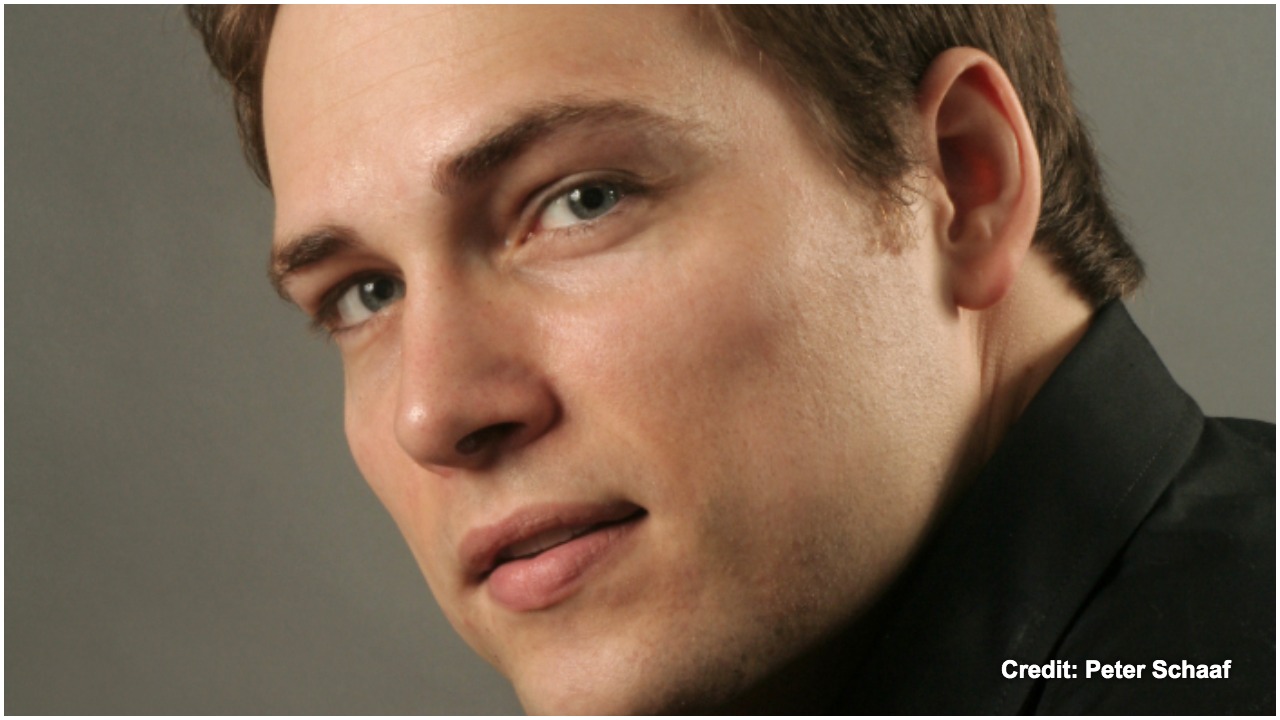
Q & A: Naomi Louisa O’Connell On Her Very Individual Career Path And On Playing Rosemary Kennedy
By Alan Neilson(Photo: Lauren Dersberg)
Irish National Opera’s recent visit to the Galway International Arts Festival with its production of Brian Irvine’s new opera “Least Like the Other: Searching for Rosemary Kennedy,” has been unanimously hailed by critics and audiences as a successful, thought-provoking work.
The central character of Rosemary Kennedy, and the opera’s only singing part, was played by Naomi Louisa O’Connell, whose performance in the role was nothing short of breathtaking. O’Connell was so finely attuned to her character that you would be forgiven for thinking that it had been written specifically for her. However, such an assumption would do her a disservice as she is a phenomenally versatile, intelligent actress, with the ability to inhabit any role she plays with equal commitment and skill.
She is also a singer with an unusual career path, moving between opera, straight theatre, cabaret, and other genres. Prior to viewing “Least Like the Other,” Operawire managed to track down O‘Connell to talk about her career and interpreting this unique work.
OperaWire: Why did you opt for a career as a singer, and who were the main influences in your development?
Naomi Louisa O’Connell: I always enjoyed singing, but I started proper singing lessons with a wonderful teacher called Archie Simpson, a Scottish piano tuner-turned-singing teacher, who lives in the Burren, Ireland. He started a choir and began giving singing lessons to some of the young kids in the area. About eight or nine of us went on to study music after school. After the first semester of working with Archie, I realized that this is what I wanted to do in some capacity: to sing, to tell a story, to actively communicate. It was like the world turned technicolor; everything was grey, then suddenly it became colorful.
After that, I started taking singing lessons with Mary Brennan, and naturally that led me to study music in Dublin. I attended the DIT Conservatory of Music for three years and then the Royal Irish Academy for my final year.
OW: At this point were you focusing on a career in opera?
NLO: Not really. I knew I wanted to sing, but I wasn’t looking much beyond the next year. Initially I wanted to pursue a double degree of English and Music, but it didn’t work out because I wouldn’t have been able to keep Mary as my singing teacher.
After Dublin, I decided to apply to The Juilliard School in New York. I was accepted, and luckily won a few scholarships that helped me financially, and it went on from there. I met a teacher at Juilliard called Stephen Wadsworth, a director and acting teacher, who became my mentor and, along with some of the singing teachers and coaches there, became a huge guiding force in my career. Today, I would label myself as an actor-singer or singing actor and I enjoy hopping between different genres.
OW: And what was your first major professional experience?
NLO: I was 24 when I graduated from Juilliard, but before I completed my Artist Diploma I took a semester off to go to London, where I performed on the West End in a Terrence McNally play called “Masterclass,” with Stephen directing and Tyne Daly playing Maria Callas, who was just… remarkable. She gave her absolute everything to each and every show, and that was very inspiring to witness. I was playing a young singer, and had to sing Verdi’s “Vieni, t’affretta” as part of the role.
The play is about Maria Callas giving a masterclass and imparting her knowledge with singing students. At the end of each act, Tyne went into these long, spoken, flashback monologues—almost arias in themselves. She’s the most incredible truth-teller. So, that was my first professional job: I worked there for four months, doing eight shows a week. I loved it (schedule included) and I learned so much—it really helped me grow. Leaving it behind was heartbreaking. It is truly a great play and worth seeing if you get the chance.
Luckily, I went straight to Garsington Opera and performed “La Périchole” by Offenbach right afterwards – this fizzy, gorgeous operetta. It was great to go into something straight after “Masterclass” as I do get the after-show blues following special productions like that. It’s one of the hardest things about this career — to leave the good jobs behind when you’re not quite ready to say goodbye to them yet. After that, I returned to New York, finished my course, and then it was job after job.
OW: So you didn’t take the normal path?
NLO: No, ever since I was a child, I always moved a little against the grain. I have an Irish father and a German mother, both somewhat hippies in their outlook, and one of the most valuable things they taught me was to be an independent thinker. I attended our local public school, where I began as one of only two non-Catholic kids in the school. So, I was set up to be a little bit different. It can be painful to be different as a child, but it has turned out to be a great asset in my working life.
OW: Many singers get pigeon-holed,but you seem to be the opposite?
NLO: Yes, my career is like a game of hop-scotch. I like to do a couple of straight theatre roles, then a couple of opera roles which push at the boundaries of the art form, such as this work “Least Like The Other,” and then I like to include cabaret and recital work.
While I was a student in New York, I won the Concert Artists Guild competition which opened up concert and recital opportunities: they gave me management, a concert tour, a debut recital at Carnegie Hall – all of which is such a gift as a young singer. It set me up with consistent recital work with my pianist collaborator, Brent Funderburk, who is now also my neighbor in NYC!
I find it’s very important for me to have variety or I get bored, and a lot of that variety has to do with the choices I made from early on. I didn’t do a lot of opera for summer programs, I gravitated towards art song or chamber music instead.
For two summers, I attended the Marlboro Music Festival, which is heaven. It’s in Vermont, in the middle of the woods and attracts some very talented classical musicians. We would rehearse music thoroughly, not just cramming rehearsals into three days before a concert. You rehearse it for weeks—you go deep. It was just magnificent.
Then one summer I took a physical theatre course, followed by a Shakespeare intensive. All of that has shaped my work. And I really enjoy working in different genres: it keeps me sharp, and the different styles of working inform one another.
In this show, I have used a lot of my physical theatre training because when you are playing something abstract, in this case the systems around the character, rather than the character themselves, it requires a slightly different approach.
OW: Is “Least Like The Other: Searching for Rosemary Kennedy” a story about her life, or aspects of her life, or about her lobotomy or something completely different?
NLO: She is the inspiration for the opera. Yes, we are telling her story, but it goes beyond that, as this is also a story about many, many women being mistreated within a patriarchal system.
Rosemary was intellectually disabled as a result of being deprived of oxygen while held in the birth canal for two hours, the reason being that the doctor would not get paid unless he was in the room when the baby was delivered, so the midwife was told not to allow the birth to take place. The mother had to hold her legs together until the doctor arrived.
From the outset, her parents knew that Rosemary was developing at a slower rate than her siblings. It is important to understand how society regarded people with learning difficulties at the time. They were called feeble-minded. In my research, I found one newspaper from the 1920s with a headline that read, “the feeble-minded breed the feeble-minded, we pay the cost.” There were few, if any, of the current structures in place to help those who were intellectually disabled. It became a huge source of secrecy in the family, never to let the media know that Rosemary had learning difficulties.
My husband had an interesting conversation with a therapist after the opening night of the opera, who said that he himself had administered the Stanford-Binet test to people in the past and noticed that there was a big difference in the way people from different classes regarded learning disabilities. The upper and middle classes tended to be more ashamed of it, while the lower classes, as they were already used to dealing with life being so hard, were more embracing of it. I found that fascinating to hear.
If you read the official literature of the time, they talk about the “menace of the feeble-minded,” its control and “ultimate eradication from the American people.” They thought they could breed it out. Eugenics was not abnormal. 60% of the scientists who attended the very first eugenics conference were American. But now we tend to hear about eugenics only in relation to Hitler, and we don’t learn about this aspect of it in the history books. And it is so important.
This is not about pointing a finger of blame at the Kennedys, and that is certainly not what the opera is about. It is a story which focuses on Rosemary, but not in a personal sense. I do not embody her fully, ever. I am not her. I remove myself a step away, so I become almost a reflection of her. Netia Jones, the director, says that we are telling an untellable story, as we only have fragmented views of her and the highly edited archives of the family.
The best metaphor I can think of is to see Rosemary as a leaf in a river, but we are not playing the leaf, we are playing the river—the systems around her that allowed this to happen. We are using this story as a way of shining a mirror on society and showing what happened during that time, and then taking that same mirror and reflecting it back on today’s society. I am sure there are stories happening today that we, as a society, are going to be very ashamed of in the future.
OW: What form will the staging take?
NLO: It has an abstract and fragmented narrative. Each scene portrays a time of high stress or some influence in Rosemary’s life, all of which contributed to the story of what happened to her, along with a guiding narrative of two researchers looking through the archives of information about Rosemary’s life.
The timeline is not necessarily linear; the boundaries between present and past are blurred. The parts we play are very specific, but it is left open to the audience to interpret them in their own way. I find that I much prefer for art to be open. I dislike productions where, as an audience member, I am not given the option to make up my own mind about the story. “Least Like The Other” encourages members of the audience to think, and to interpret it in the way they themselves see it.
OW: How would you describe Brian Irvine’s music?
NLO: It has some beautiful, still, heavenly melodies, but also some harsh, fraught, intense, panic-inducing sections. It shifts very quickly. It is not extremely tonal, but there are moments of beautiful tonality within it. It is a difficult score, and worthy of its difficulty. It is not Brian writing something complicated just to show that he can do it. He writes the music because the drama requires it.
The orchestra is small: we have a chamber ensemble of 14 players, three of whom are improvisers, and so parts of the score are left open and will change each night. Also for me, there is a part where I can choose how to approach and end it. So, the piece will change slightly with every audience.
OW: What challenges did you face in learning the role?
NLO: The biggest challenge is to portray something that is not a cut and dried character. If I am playing Cherubino, I know I’m playing a teenage boy. This role is more abstract. Netia directs a lot of Beckett, and she likes to strip everything to its essential parts. This role is about doing less, not more. It feels very exposed: vocally, emotionally… and physically too, when I strip to my underwear onstage. I am used somewhat as an object, with the two actors who play the roles of researchers manipulating me. I am constantly abandoned. It is emotionally draining, very difficult.
OW: A lot of what you have been discussing has political undertones. What role do you think opera has in informing the political debate, if any?
NLO: I think most art reflects society in some way. Looking at this work, if the audience goes away with a question inside them, which makes them look at our society a little more consciously, then I think it is a good thing. There are so many things in life that we just accept because that is How Things Are. People say, “this is how we always have done it,” and sometimes we don’t think any further.
Also, we must move beyond thinking in terms of us and them. The most important thing we can teach children is to question, and art should inspire questions. It is wonderful for art to be simply beautiful, but right now I am interested in art that inspires questions, and this opera has a political side. So, if it encourages people to think more broadly, then great — we will have succeeded.


